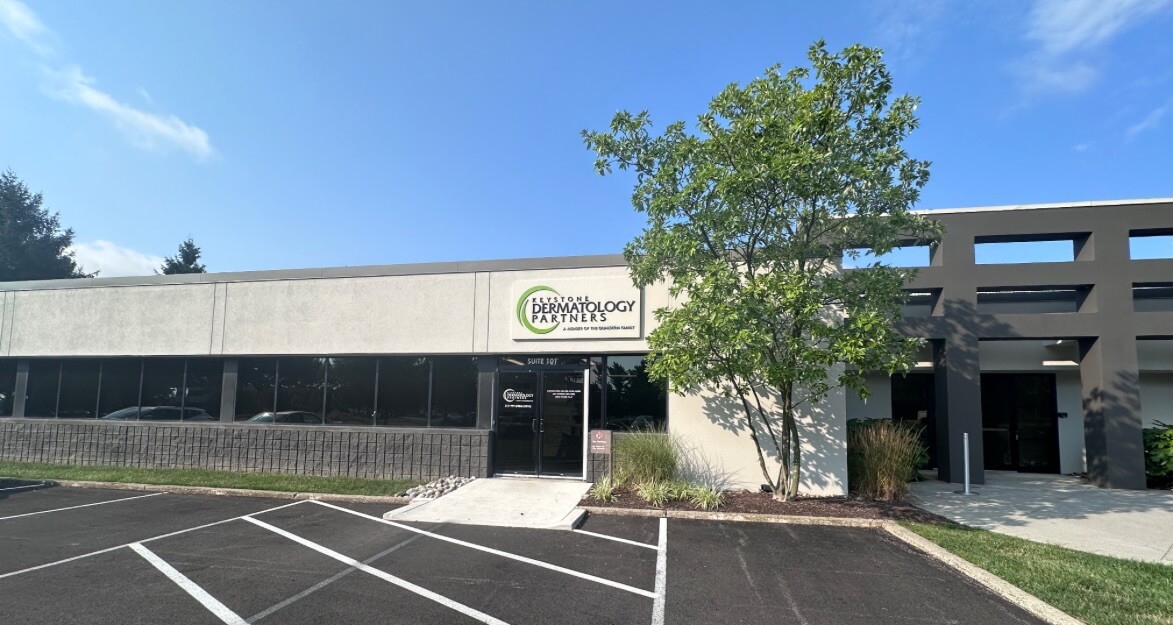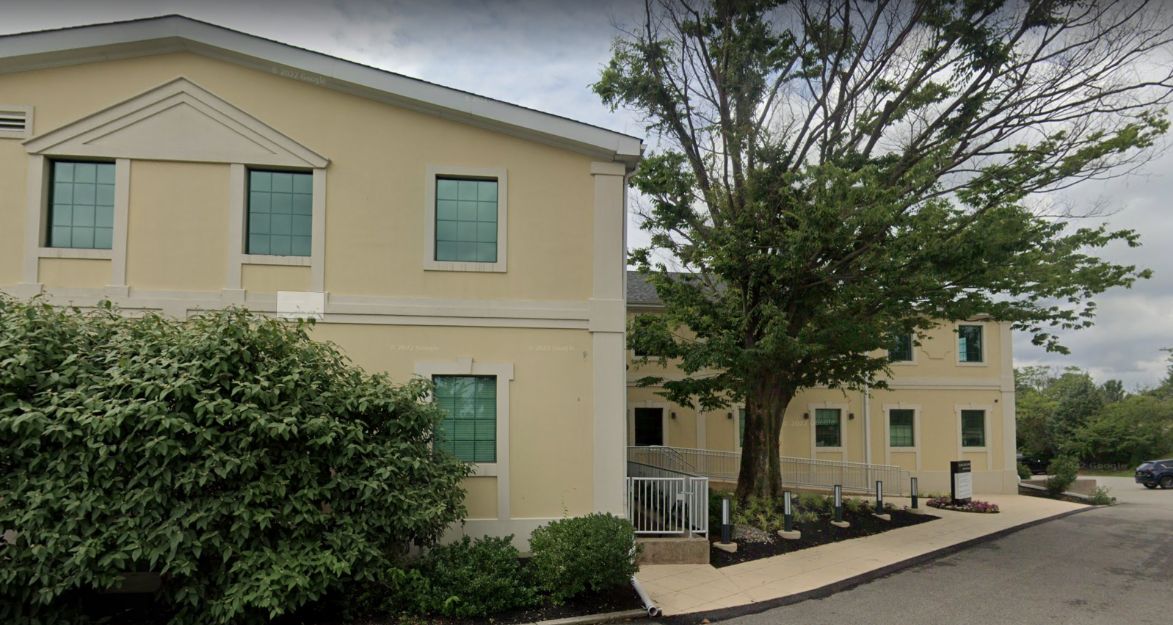Pityriasis Rosea
Understanding Pityriasis Rosea: Symptoms and Care
Pityriasis rosea is a common, harmless skin condition that typically begins with a single, large pink or red spot, known as a "herald patch," which is followed by smaller, scaly, oval-shaped lesions that spread across the body. While it is not a serious condition, it can cause discomfort and itching.
At Keystone Dermatology Partners, our dermatologists are skilled in diagnosing and treating pityriasis rosea to help manage symptoms and promote healing.
Schedule a consultation with the skin experts at Keystone Dermatology Partners to begin your journey toward healthier skin.
Examples of Pityriasis Rosea
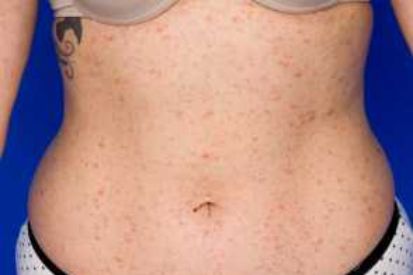
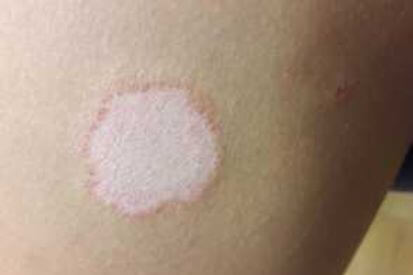
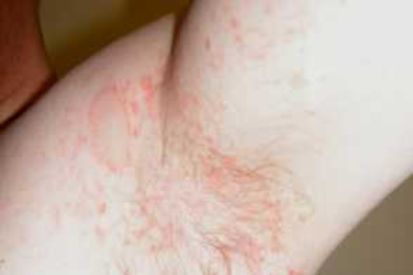
Pityriasis Rosea Symptoms:
- 'Herald Patch': A single, large pink or red patch.
- Secondary rash: Smaller, scaly, oval-shaped lesions.
- Itching
- Fatigue
- Flu-like symtoms
Who Gets Pityriasis Rosea?
- All ages any skin color
- Most likely to occur between the ages of 10-35
- During pregnancy
How Do I Know if I Have Pityriasis Rosea?
Daughter patches tend to be smaller in size and often appear on the chest, back, arms, and legs. These patches can also form on the neck and face, sometimes even in the mouth. If many patches begin to form, they may assume a “Christmas tree” pattern on the back. Patches may be scaly and itch.
FAQs about Pityriasis Rosea
No, Pityriasis Rosea is not contagious. You can't pass it on to others through skin-to-skin contact. It's a reaction within your body, not an infection that can be transmitted.
Yes, you can still go about your daily activities. Pityriasis Rosea isn't usually a reason to stay home. It's not harmful, and the rash is not a sign of a serious illness. Just be mindful of your comfort, and avoid activities that may irritate the rash.
To relieve itching, use mild, fragrance-free moisturizers and take cool baths. Over-the-counter antihistamines may also help. If the rash is uncomfortable, consult with a dermatologist who can recommend appropriate treatments.
No, Pityriasis Rosea doesn't usually leave scars. Once it resolves, your skin should return to its normal appearance. If you have concerns or notice changes, a dermatologist can address them.
How to Treat Pityriasis Rosea
If you are struggling with Pityriasis Rosea, visit a dermatology professional at Keystone Dermatology, where a member of our team can asses your skin and create a customized treatment plan for your skin needs.
Featured Blogs
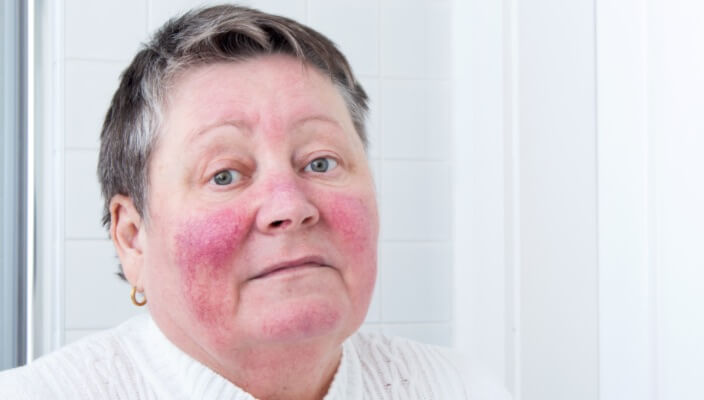
- General Dermatology
- Skin Care
Rosacea is a common skin condition characterized by facial redness and pimples. A recent study suggests that drinking caffeinated coffee may reduce the risk of developing rosacea, highlighting a potential benefit of coffee consumption.
Read More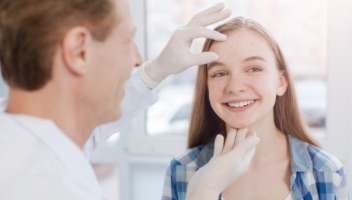
- General Dermatology
- Chronic Skin Conditions
Discover how a dermatologist father identified and managed molluscum contagiosum, a common and benign skin infection, after noticing skin-colored bumps on his son.
Read More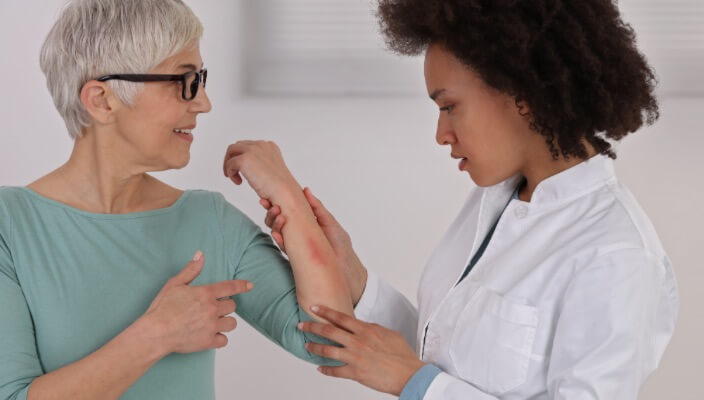
- General Dermatology
Almost everyone experiences itchy skin at some point. Read this blog to learn how a dermatologist can help.
Read More
